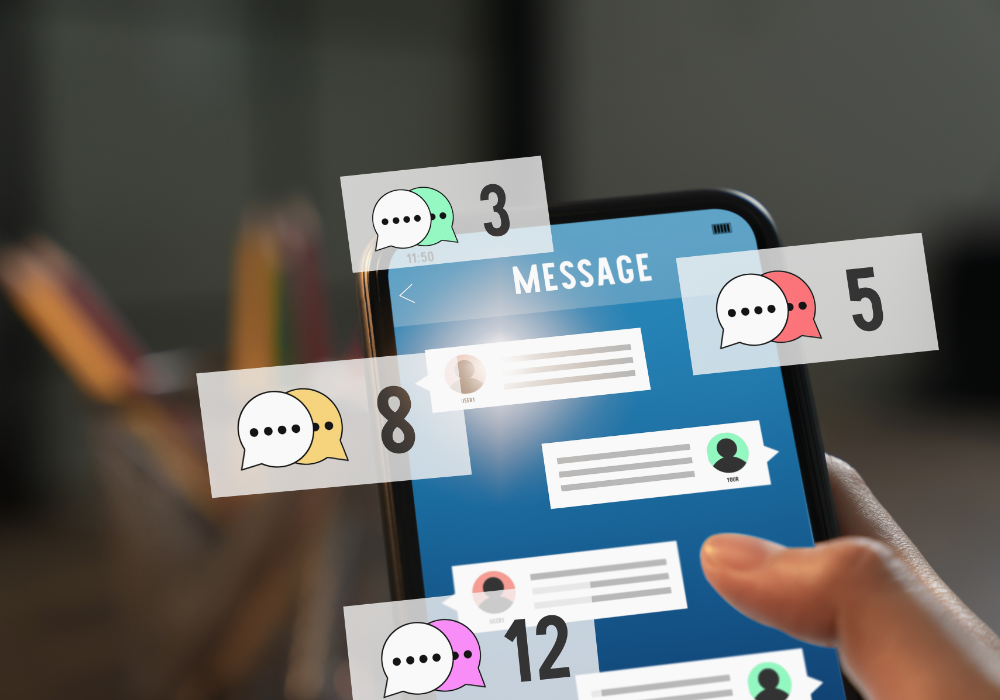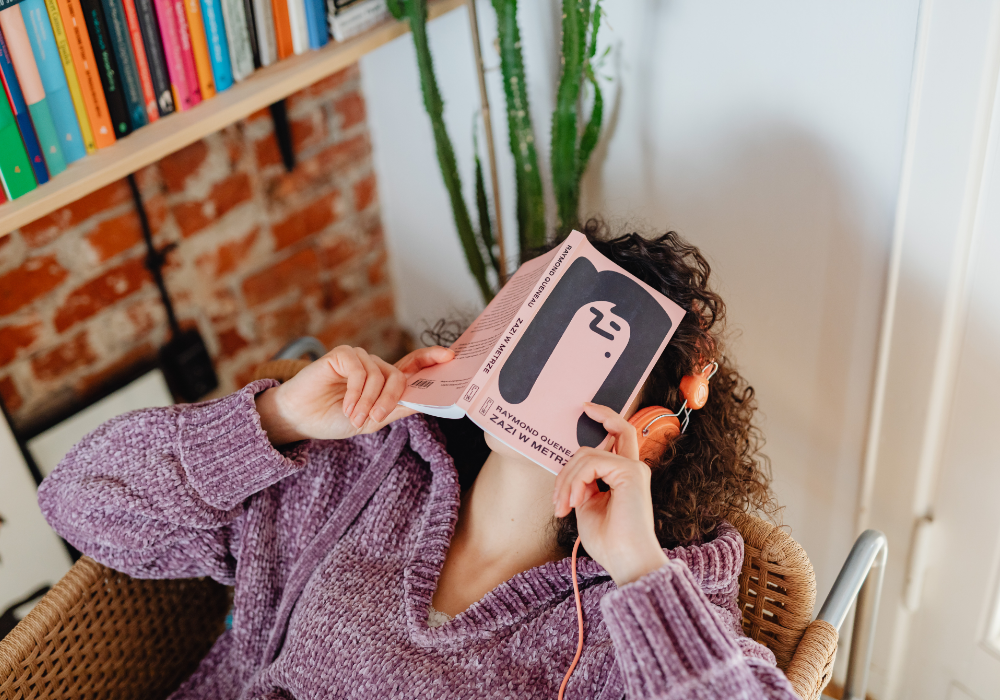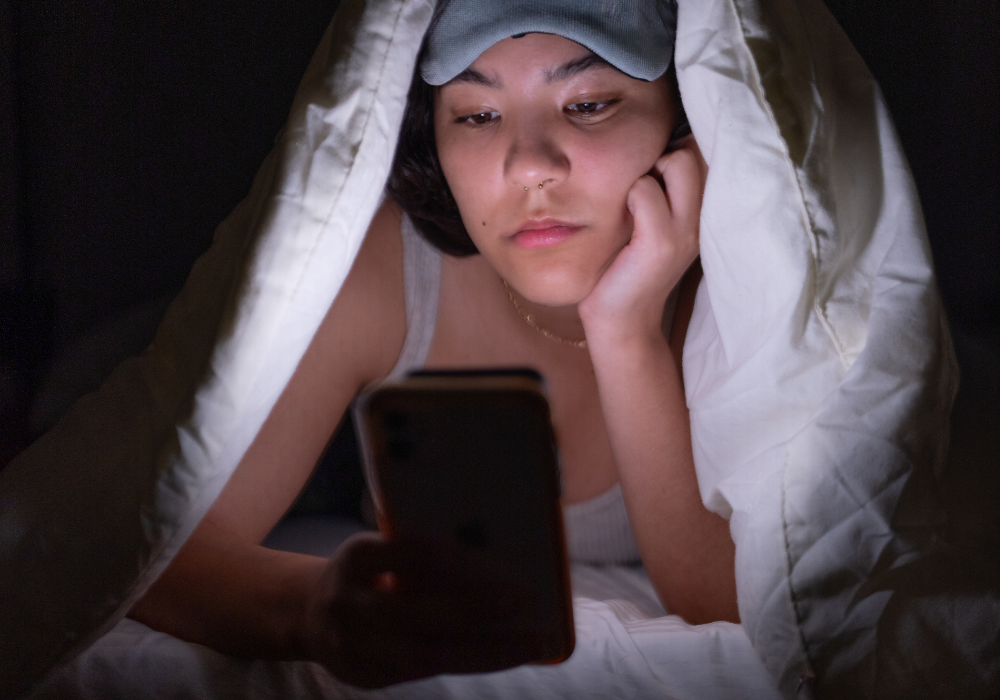If silence makes you anxious, your feed might be why.

There was a time when silence felt normal. You’d stare out the window, sit through a car ride without music, or let your thoughts drift while folding laundry. Now, even a moment of quiet feels itchy. You instinctively reach for your phone, refresh your feed, or play something in the background—anything to avoid being alone with stillness. That discomfort didn’t just show up out of nowhere. It was trained into you, slowly and deliberately.
Social media isn’t just addictive—it’s immersive. It reshapes your nervous system to expect nonstop input. Over time, silence starts to feel like a void instead of a break. Stillness becomes suspicious. Boredom feels unbearable. And rest turns into another kind of performance. These ten subtle shifts aren’t just changing how people use their time—they’re changing how we feel when there’s nothing left to consume. Once you see it, you’ll realize the silence never left—you were just taught to fear it.
1. Endless content makes boredom feel like failure instead of freedom.

Remember when staring at the ceiling or zoning out in the backseat just… happened? Now even the smallest gap in stimulation feels unbearable. Social media turned boredom into a design flaw—something to be fixed with endless scrolls and autoplay videos. There’s always something else to watch, click, or consume, which means your brain never has to pause.
But that pause was never the problem. Boredom is where creativity, insight, and actual rest used to live. Now it’s mistaken for laziness or inefficiency. According to Kirsten Weir for the American Psychological Association, boredom “relates to attention” and signals a craving for stimulation—meaning when screens eliminate these pauses, they cut off the brain’s natural space for curiosity and creative thought.
The constant feed rewires your tolerance for quiet, replacing curiosity with compulsion. If there isn’t a screen filling the silence, something feels wrong. But that’s not your intuition talking—it’s a system that profits from your inability to sit still.
2. Notifications condition your brain to expect constant stimulation.

Every ding, buzz, or red dot is a microhit of dopamine. At first, it feels harmless—even exciting. But over time, it trains your brain to stay in a low-level state of hypervigilance, always half-expecting something new. Silence, then, becomes suspicious. If nothing is happening, something must be off. As highlighted by a 2022 PLOS ONE study, even the sound of a smartphone notification—without interaction—significantly slows response times and disrupts attention, indicating that notifications prime the brain for constant alertness and reduce focus.
This feedback loop makes focus harder and rest feel incomplete. Your brain stops settling down because it’s been conditioned to wait for the next hit. Even without notifications, you start checking apps on instinct. Not because you’re curious—but because silence feels empty in a way that’s become physically uncomfortable. It’s not just distraction. It’s dependence. And the longer it goes unchecked, the more silence starts to feel like withdrawal.
3. “Going offline” is framed as a threat to connection and relevance.

Taking a break from social media is supposed to feel healthy, right? But the moment you log off, the fear kicks in—fear of missing out, being forgotten, falling behind. The platforms quietly push the idea that silence = invisibility. And if you’re not constantly posting or reacting, do you even exist? Per Martin Pielot for Cornell University, participants who turned off all notifications for 24 hours experienced improved focus—but also reported increased anxiety and fear of missing out, highlighting how social media platforms exploit attention and social validation loops.
This fear isn’t irrational—it’s baked into the architecture. Stories expire. Trends move fast. The conversation doesn’t wait. So people stay online longer than they want to, not because they’re enjoying it, but because stepping back feels like disappearing. Silence becomes risky. Stillness feels like social death. And the idea of just being—without performing—starts to feel dangerously out of reach.
4. Algorithmic noise drowns out your ability to hear your own thoughts.

Every scroll is a curated feed of someone else’s opinions, ideas, and emotions. It doesn’t matter how smart or intentional you are—if you consume enough noise, it becomes hard to tell what’s yours and what’s been implanted. And once your brain adapts to that volume, true silence doesn’t just feel quiet—it feels vacant.
This is how internal clarity gets replaced with digital input. You forget what your own thoughts sound like. You doubt your instincts. You overthink every decision because your mind is cluttered with a thousand other voices. Silence used to be where people found themselves. Now it feels like static. Not because it is—but because it’s competing with a machine that never shuts up.
5. The pressure to document everything turns presence into performance.

You’re finally in a peaceful moment—sun on your face, wind in the trees—and your first instinct? Capture it. Post it. Share it. The moment stops being something you’re living and starts being something you’re packaging. Social media turns presence into content and trains you to chase validation instead of stillness.
This shift doesn’t just steal the magic—it rewires your relationship to reality. If something isn’t posted, it starts to feel like it didn’t happen. And if silence can’t be shared, it starts to feel like it has no value. Over time, the quietest, most grounded moments get lost under the weight of wanting to be seen. And when you’re constantly curating your life for an audience, solitude stops being sacred—it becomes something to escape from.
6. Silence becomes suspicious when the feed teaches you to always be reacting.

Social media platforms are built for engagement—likes, shares, outrage, approval. You’re not just scrolling, you’re constantly reacting. Over time, this nonstop input trains your brain to feel like silence means something’s wrong. If there’s nothing to comment on, nothing to like, nothing to have an opinion about, the moment starts to feel empty.
That kind of wiring makes real rest almost impossible. Moments of quiet reflection don’t feel neutral anymore—they feel like you’re missing something. Or worse, like you’re falling behind. The algorithm doesn’t reward stillness, and your nervous system gets the message. If you’re not reacting, you’re irrelevant. So your baseline shifts. Calm isn’t calm—it’s anxiety in disguise. And even when you crave peace, it feels alien the moment it arrives.
7. Fast-paced scrolling destroys your tolerance for slow, quiet joy.

Slow things—books, nature, long conversations—used to feel satisfying. Now they can feel intolerably slow. That’s not a coincidence. Scrolling teaches your brain to expect instant hits of stimulation every few seconds. If something doesn’t grab you fast enough, your attention bolts. Silence doesn’t compete well in that race.
This rewiring makes real-life pleasures feel dull or even agitating. A quiet walk feels boring. A movie without fast cuts drags. Sitting with your own thoughts feels like mental static. The more time you spend in the rapid-fire tempo of social media, the more everything else feels too slow. And in that overstimulated state, silence becomes unbearable—not because it’s bad, but because your nervous system has forgotten how to live inside it.
8. Emotional noise becomes addictive when your feed rewards drama over calm.

Social media doesn’t just prefer content—it prefers intensity. Rage, heartbreak, scandal, triumph—those are the posts that spread. So even if you think you’re just “checking in,” your brain is soaking in a cocktail of emotional extremes. Over time, those extremes become your new normal. And in comparison, silence starts to feel empty.
Calm moments no longer register. They don’t light up the same parts of the brain. So when things get quiet, it feels like something’s missing—even if nothing’s wrong. You scroll again, not for information, but for that emotional jolt. Crisis becomes comfort. Stillness becomes suspicious. And instead of coming down from the noise, you start chasing it without even realizing. That’s not drama addiction—it’s emotional conditioning. And the more it takes root, the harder it is to find peace without chaos.
9. Social media confuses visibility with value—so quiet moments feel like invisibility.

Platforms reward performance. Whether it’s beauty, talent, activism, or vulnerability, everything becomes content. And when everything is content, the quiet, unshared moments start to feel pointless. If nobody sees it, does it matter? If you’re not posting, do you still exist? That mindset creeps in whether you want it to or not.
It becomes harder to enjoy things just for yourself. You start narrating your life like it’s meant for an audience. Silence feels wasteful. Rest feels like you’re letting your relevance slip. But life wasn’t meant to be a livestream. Some of the most real, grounding moments happen when no one’s watching. Social media doesn’t erase those moments—but it does make you question their worth. And once you start believing that only the visible things matter, you stop trusting the quiet ones that actually keep you grounded.
10. The constant presence of others online makes solitude feel unsafe.

Social media makes you feel like you’re never really alone—there’s always someone to DM, tag, or reply to. That can be comforting, but it also reshapes your relationship with solitude. Real alone time starts to feel eerie. Not peaceful. Not rejuvenating. Just… uncomfortable. Like something’s wrong or someone’s missing.
This is what happens when connection becomes constant. The mind forgets how to be by itself. Silence starts to feel like isolation, instead of what it actually is: space to breathe. And the fear that nothing is happening without you—or worse, that you’re not happening without others—starts to take over. But solitude isn’t absence. It’s presence, just with yourself. Reclaiming that isn’t about deleting your apps. It’s about remembering you existed before the algorithm told you who to be—and you still do, in the quiet.
